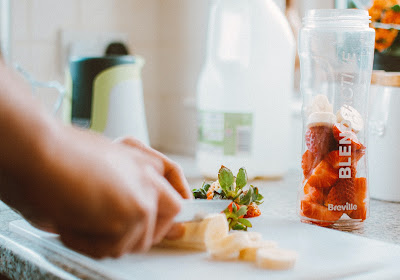Gut Health Guide: Beat Bloating, Boost Your Microbiome, and Transform Digestion
Your Gut Microbiome – The Hidden Ecosystem Governing Your Health
Imagine
a bustling city inside your digestive tract—trillions of microorganisms working
24/7 to keep you healthy. This is your gut microbiome, a complex
community of bacteria, fungi, and viruses that weighs up to 2–5 pounds and acts
like an extra organ 26. When balanced, this
ecosystem digests food, trains your immune system, and even regulates your
mood. But when disrupted—a condition called dysbiosis—it triggers
bloating, inflammation, and chronic disease 16.
Why Your Gut Microbiome
Matters More Than You Think
·
Digestive Powerhouse:
Beneficial bacteria break down fiber into short-chain fatty acids (SCFAs)
that nourish your gut lining, reduce inflammation, and help prevent weight gain
and diabetes 26.
·
Immune Command Center:
Nearly 80% of your immune cells reside in your gut. A healthy microbiome acts
as security, identifying pathogens and strengthening your intestinal
barrier 110.
·
Brain-Gut Connection: Your
gut produces neurotransmitters like serotonin (your "happy hormone").
Dysbiosis is linked to depression, anxiety, and "brain fog" 56.
·
Disease Prevention:
Imbalanced microbiomes contribute to IBS, heart disease (via TMAO production),
and even osteoporosis 610.
"An
unhealthy gut can lead to repeated infections, skin issues like acne, sleep
disturbances, and weight gain," notes research
from Next Biosciences 10.
What Causes Dysbiosis?
Modern
life assaults our microbiomes:
·
Antibiotics: Wipe
out good and bad bacteria indiscriminately 611.
·
Ultra-Processed Diets: High
sugar and fat feed harmful bacteria 37.
·
Chronic Stress:
Elevates cortisol, damaging gut lining 5.
·
Lack of Fiber:
Starves beneficial microbes, reducing diversity 23.
Key
Insight: Studies show identical twins have different microbiomes
if one has obesity, proving environment outweighs genetics in gut health 2.
Probiotics
for Gut Health – Your Bloating Solution and Beyond
Probiotics are
live microorganisms that, when consumed in adequate amounts, confer health
benefits. They’re your microbiome’s reinforcements—crowding out harmful
bacteria, sealing intestinal leaks, and calming inflammation 15.
Can
Probiotics Really Beat Bloating?
Bloating
affects 16–31% of people, often due to dysbiosis. Probiotics show promise:
·
IBS Relief: A
2018 review of 15 studies found probiotics significantly reduced bloating and
improved bowel regularity in IBS patients 48.
·
Strain-Specific Effects:
o Lactobacillus strains
(in yogurt, kimchi) reduce bloating and gas 4.
o Bifidobacterium (in
kefir, buttermilk) increases stool frequency 4.
·
Temporary Adjustment: Some
experience initial bloating as gut bacteria rebalance—this usually resolves in
days 47.
Important
Note: Not all probiotics are equal. Quality matters—look
for strains clinically proven for your symptoms (e.g., L. acidophilus for
bloating) 18.
Beyond
Digestion: Surprising Probiotic Benefits
- Skin Health: Probiotics combat inflammation in the gut-skin axis, improving acne, eczema, and even wrinkles 5.
- Mental Wellness: Strains like L. helveticus and B. longum reduce anxiety and depression symptoms 5.
- Weight Management: Specific probiotics inhibit fat storage and improve insulin sensitivity 5.
The Probiotic Supplement Dilemma
·
Look For:
- Strain names (e.g., Lactobacillus rhamnosus GG)
- CFU count (5–50 billion ideal)
- Third-party testing (NSF, USP)
·
Avoid If:
Immunocompromised, as rare infections can occur 111.
·
Post-Antibiotic Warning: New
research shows probiotics delay natural microbiome recovery.
Opt for prebiotic foods instead 11.
Expert
Take: "Save your money and eat healthy. I wish a
pill gave me a six-pack, but that’s not how life works," advises
Dr. Rezaie of Cedars-Sinai 11.
Fermented
Foods, Prebiotics, and Your Personalized Gut Plan
Why
Fermented Foods Outshine Supplements
Fermented
foods are nature’s probiotics, offering diverse strains
unreplaceable in labs:
·
Top Choices:
|
Food |
Key Probiotics |
Serving Size |
|
Kefir |
Lactobacillus, Bifidobacterium |
1 cup |
|
Kimchi |
Leuconostoc, Lactobacillus |
½ cup |
|
Sauerkraut |
Multiple Lactobacillus strains |
2 tbsp |
|
Kombucha |
Acetobacter, Saccharomyces |
½ cup |
A
Stanford study found people eating 6+ daily servings of fermented foods boosted
microbiome diversity and reduced inflammation in 10 weeks 4.
Prebiotics: The Unsung
Heroes
Prebiotics are
fibers that feed probiotics. Without them, beneficial bacteria starve:
·
Best Sources:
Garlic, onions, asparagus, bananas, oats, and apples 37.
·
Synbiotic Power: Pair
prebiotics with probiotics (e.g., yogurt + bananas) for 50% greater
colonization 3.
Your 7-Day Gut-Reset
Plan
1.
Breakfast:
Overnight oats with kefir, bananas, and almonds
2.
Lunch:
Salad with chickpeas, kimchi, and apple cider vinegar dressing
3.
Dinner: Salmon
+ asparagus sautéed with garlic
4.
Snacks:
Greek yogurt with berries; kombucha
5.
Avoid:
Artificial sweeteners (linked to Enterobacteriaceae overgrowth) 3.
6.
Move Daily:
Light exercise improves motility 4.
7.
Fast Overnight:
12–14 hours without food aids microbial repair 11.
When to Consider the
GAPS Diet
The Gut
and Psychology Syndrome (GAPS) diet—an elimination protocol removing
grains, sugars, and processed foods—may help those with:
·
Severe IBS or leaky gut
·
Autoimmune conditions
·
Neurological issues like ADHD
Note: Consult a nutritionist before starting, as it’s highly
restrictive. Learn more about personalized approaches like this in our guide to
the GAPS diet.
The Future: Personalized Gut Health
Microbiome
testing (e.g., Viome, ZOE) identifies your unique "good" and
"bad" bacteria. Unpublished ZOE data shows personalized diets
increase regular bowel movements by 15% 4.
While promising, diet diversity remains paramount:
"Eating
a wide variety of high-fiber and fermented foods supports a healthy microbiome
better than any pill" 211.
Key
Takeaways
1.
Beat Bloating:
Target Lactobacillus and Bifidobacterium strains
via yogurt, kefir, or supplements.
2.
Diversify Plants: Aim
for 30+ weekly plant types to nourish diverse microbes.
3.
Ferment Daily: Even
2 tbsp of sauerkraut counts.
4.
Prebiotics Are Non-Negotiable: No
fiber = starving probiotics.
5.
Personalize Wisely: When
DIY efforts fail, seek testing or a FODMAP elimination plan.
Ready
to transform your gut? Start today with one fermented food and a double serving
of vegetables. Your microbiome will thank you.
Citations:
Cleveland Clinic 16, Healthline 235, ZOE 4, Mayo
Clinic 7, Cedars-Sinai 11, Next Biosciences 10.
Internal Link: Explore diet deep-dives like the GAPS diet.
External Links: Cleveland Clinic on Probiotics, ZOE Gut Health Research.



